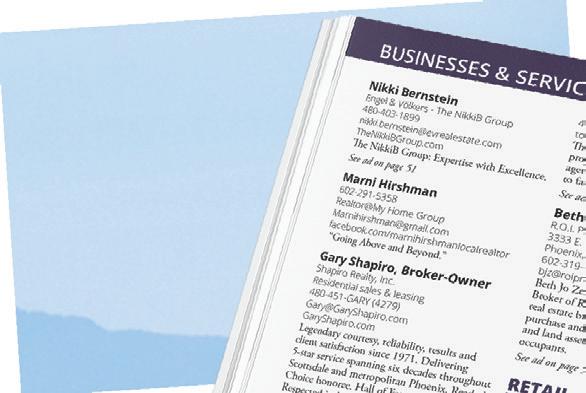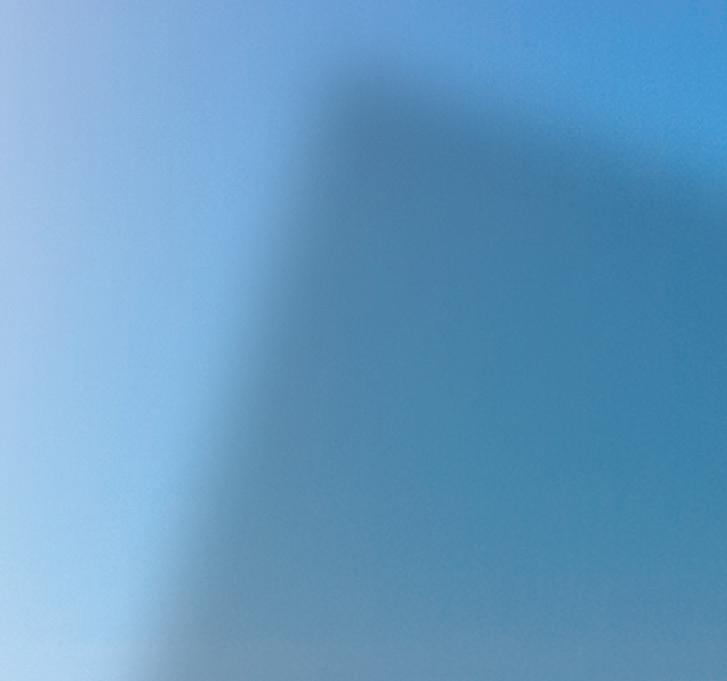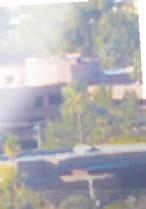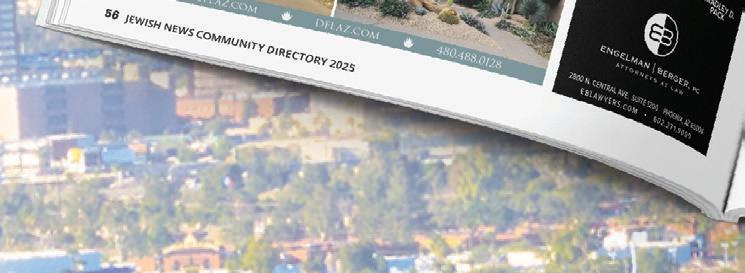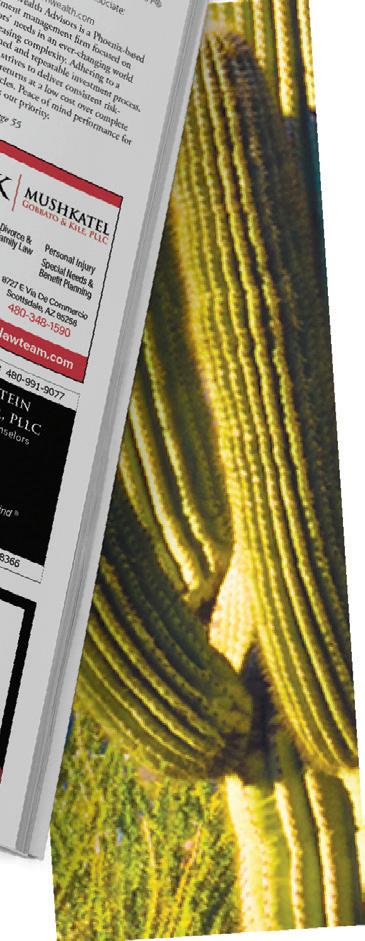
CELEBRATING CULTURE
Desert Foothills Library is hosting a “Jewish Culture & Heritage Festival”
GET ORGANIZED
Expert Rachel Winter shares tips on how to keep your family organized



Desert Foothills Library is hosting a “Jewish Culture & Heritage Festival”
Expert Rachel Winter shares tips on how to keep your family organized

SHANNON LEVITT | STAFF WRITER
Adecades-old mystery involving Holocaust survivors and cassette tapes is slowly being unwound by a committed cadre of Northern Arizona University (NAU) students, their professor and Holocaust experts in Flagstaff. Their painstaking search for answers began innocently enough in 2023, when historian Karl Krotke-Crandall took an assistant professor job at the NAU Honors College and attended a welcome mixer at Cline Library. In the course of making small talk, Sean Evans, a library archivist (historians’ favorite people, according to KrotkeCrandall), asked the new professor about his area of research. Krotke-Crandall’s answer — the Russian Jewish community, the Holocaust and the Soviets — gave Evans pause. Turns out, he had something that might be of interest in the library archive.
A week later, Krotke-Crandall was looking at a collection of dozens of old cassette tapes. At some point in the 1980s, someone had recorded the stories of Holocaust survivors for a project called “Delaware Valley Holocaust Committee,” but the details of how the project came to be, who the survivors were, why they had been chosen and why this name even, were long gone.
While many scholars might jump at the chance to solve an old riddle for the pure exhilaration of it, finding the solution to this puzzle — one that’s been quietly gathering dust for decades — will shed new light on survivors’ histories and might even give their families some solace.
SEE MYSTERY, PAGE 2
Nostalgic for Manischewitz, but not enough to drink it? Jewish cook demonstrates its many uses
While visiting her grandfather in a retirement home a few years ago during Passover, Micah Siva snuck in a bottle of Manischewitz. Though it wasn’t allowed, Siva wanted to bring her beloved and sweets-loving grandfather a bit of Jewish holiday nostalgia.
“He wasn’t very verbal at that point, but when he saw the Manischewitz bottle, his eyes lit up. He always loved it,” Siva told a crowd at the Ina Levine Jewish Community Campus on Sunday, March 2.
Siva, a chef, registered dietitian, recipe writer and food photographer, specializing in modern Jewish cuisine, spoke as part of Passages, the Bureau of Jewish Education of Greater Phoenix’s annual speaker series on topics important to the Jewish community.
BJE Executive Director Myra Shindler said she loves when speakers incorporate family stories into their talk, as well as giving a glimpse into obscure histories around Jewish food, as Siva did with Manischewitz.
While Siva does marketing for Manischewitz food products, she has no professional tie to the wine, which is separately owned by E & J Gallo Winery but continues to license the name. Yet, the wine features in several of her vegetarian Jewish recipes, appearing in “Nosh,” her cookbook she published last year.
“Manischewitz wine is so nostalgic, but it is better to cook with than to drink,” she laughed.

SEE COOK, PAGE 3
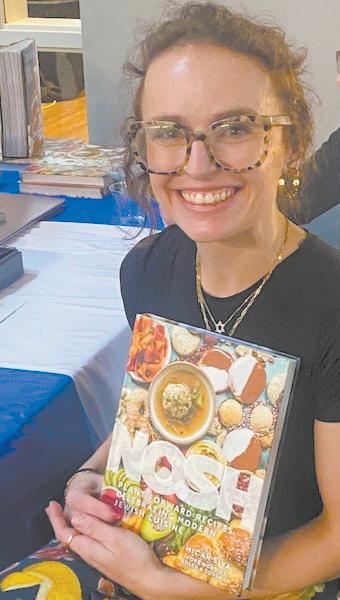

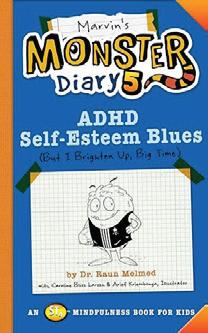
Raun Melmed MD, FAAP shares ways that parents can help their child build self-esteem. See page 10.



“I definitely enjoy the mystery, but the number one factor for me was preservation,” Krotke-Crandall told Jewish News.
Cassette tapes don’t last forever; before the voices and the stories were lost, he wanted them to be heard.
“I have collected stories from Holocaust survivors in Russia that have never been heard here, so I was not about to let these voices disintegrate. These people went through one of the greatest tragedies of the 20th century. We were not going to let these voices disappear and be forgotten,” he said.
But how?

about her Judaism with her fellow council members and speaking out for her rights
She already has some practice at
about her Judaism with her fellow council members and speaking out for her rights
“One time, I was in class and someone called me the R-word and I told him not to. The teacher was in the hallway and another student repeated the word,” she said. Rather than letting the situation go, she told her theater teacher, who was able
She already has some practice at
“One time, I was in class and someone called me the R-word and I told him not to. The teacher was in the hallway and another student repeated the word,” she said. Rather than letting the situation go, she told her theater teacher, who was able
“If someone has a disability, saying the R-word is like saying the F-word,”
“If someone has a disability, saying the R-word is like saying the F-word,”

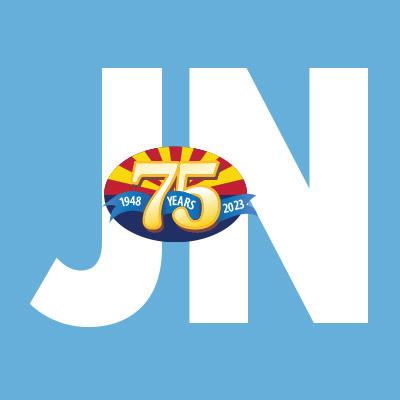
As Krotke-Crandall acknowledged, the library’s hands were tied. “There’s only so much time, only so much money. I looked at Sean and said, ‘Let me take care of this.’”
January 6
August 25
Meyers was so captivated by the essays that he reached out to Silverman, and the two became friends.
referred to, the “Delaware” conversations.
That’s how Stern first learned of the open council seat, but there’s no doubt she earned her position, Meyers said.
While performing in the musical “Hairspray,” she had another occasion to tangle with the offensive word, which appears in the script.
While performing in the musical “Hairspray,” she had another occasion to tangle with the offensive word, which
January 20
He and the team he assembled have been doing just that for more than a year.
September 1
“We figured out pretty quickly that it is an unknown collection,” Krotke-Crandall said.
That’s how Stern first learned of the open council seat, but there’s no doubt she earned her position, Meyers said.
To become a council member, Stern had to apply and demonstrate that she had something valuable to contribute, he said.
“That’s really bad and my friend said it on stage. I was not OK with that, so I went to the director and told her it was a bad word for people with disabilities, but she wouldn’t take it out,” Stern said.
January 6
February 3
First, he contacted the Martin-Springer Institute (MSI) at NAU, whose mandate is to study Holocaust history. Robin LaCorte, MSI’s Holocaust education program coordinator, had actually heard of the “Delaware” tapes a few years earlier while working on another couple of banker boxes full of cassettes and VHS tapes filled with survivor conversations at the Arizona Jewish Historical Society (AZJHS) in Phoenix.
January 20
February 17
March 10
February 3
February 17
March 24
March 10
March 31
March 24
April 7
March 31
April 21
April 7
May 5
April 21
May 19
June 9
May 5
May 19
July 14
June 9
August 4
1
8
September 8 September 15 October 6
15
October 13**
6
October 20
November 3
13**
20
November 10
3
She helped categorize, cross-reference and digitize those tapes, noting the fact that “NAU” was written on some of them. At that time, she contacted Cline and learned of their collection of cassettes, but seemingly, there was no connection. She has since discovered that there is some overlap, but what it might mean is still unknown.
November 17
10
December 1
17
December 15
1
15
They raised funds between MSI, the Honors College and Cline to digitize the tapes. Four student interns started transcribing the digital files, but that process took too long. It was faster for them to use an AI transcription service, read through and check against the recordings carefully and clean up any mistakes. (AI sometimes interjects current language or references, such as COVID-19.) Then, the interns developed a list of search terms and wrote an abstract for each conversation, assisting future researchers.
“She’s on the council because she deserves to be on the council,” he said.
To become a council member, Stern had to apply and demonstrate that she had something valuable to contribute, he said.
“She’s on the council because she deserves to be on the council,” he said.
Stern is creating a life and career as a member of her community, which makes her a great addition.
Stern is creating a life and career as a member of her community, which makes her a great addition.
Stern graduated from McClintock High School in Tempe last year and now attends Glendale Community College, with a focus on dance. She is a regular performer at Detour Company Theatre, a Scottsdale theatre company for adults with intellectual, developmental and physical disabilities.

Stern graduated from McClintock High School in Tempe last year and now attends Glendale Community College, with a focus on dance. She is a regular performer at Detour Company Theatre, a Scottsdale theatre company for adults with intellectual, developmental and physical disabilities.
In fact, when Stern attended her first council meeting in January, she couldn’t wait to tell people of her involvement with Detour and share information about its upcoming shows.
She let her mother know about the conflict and they were able to convince the director of the need to remove the
“That’s really bad and my friend said it on stage. I was not OK with that, so I went to the director and told her it was a bad word for people with disabilities, but she wouldn’t take it out,” Stern said.
She let her mother know about the conflict and they were able to convince the director of the need to remove the word from the script.
“My friend Al was next to me when I told the director and he gave me the biggest hug ever and said that he loved me so much,” Stern said. Sadly, Al died in a car crash on Oct. 24, 2021.
“My friend Al was next to me when I told the director and he gave me the biggest hug ever and said that he loved me so much,” Stern said. Sadly, Al died
Heart Can’t Even Believe It: A Story of Science, Love and Down Syndrome,” Silverman’s book about her daughter. When Gesher’s speakers’ bureau, Damon Brooks & Associates, was asked to find a speaker about Down syndrome for an event this spring, Hummell first asked Silverman to speak, thinking Stern might be too young.
Heart Can’t Even Believe It: A Story of Science, Love and Down Syndrome,” Silverman’s book about her daughter. When Gesher’s speakers’ bureau, Damon Brooks & Associates, was asked to find a speaker about Down syndrome for an event this spring, Hummell first asked Silverman to speak, thinking Stern might be too young.
They decided instead that Stern should tell her own story; it’s a real bonus that she is not afraid of public speaking.
“That was hard; it’s very hard to get emotions out and I was very, very upset,”
July 14 August 4 August 18*
August 18*
Krotke-Crandall and the “dynamo” LaCorte spent a few weeks digging through all the national and local archives trying to figure out whether anyone else knew of, or
The United States Holocaust Memorial Museum, where the collection will eventually land, would have accepted the digital files, but using student interns made more sense to Krotke-Crandall. What better way to give students hands-on experience of the process, as well as an actual window into history?
In fact, when Stern attended her first council meeting in January, she couldn’t wait to tell people of her involvement with Detour and share information about its upcoming shows.
“They get to hear firsthand from victims that they didn’t know existed about these
“There’s no question that she is going to thrive,” Meyers said. “She’s very gregarious and passionate about the things that matter to her.”

“There’s no question that she is going to thrive,” Meyers said. “She’s very gregarious and passionate about the things that matter to her.”
Stern looks forward to sharing insights
MYSTERY, PAGE 4
Stern looks forward to sharing insights
On the recent anniversary of his death, Stern made a cake and took it to the
“That was hard; it’s very hard to get emotions out and I was very, very upset,”
On the recent anniversary of his death, Stern made a cake and took it to the
“I don’t know how I did it without crying. I’m so proud of myself,” she said.
Amy Hummell, executive director of Gesher Disability Resources, agreed that Stern is a good fit for ADDPC because of her ability to self-advocate.
“I don’t know how I did it without crying. I’m so proud of myself,” she said.
Amy Hummell, executive director of Gesher Disability Resources, agreed that Stern is a good fit for ADDPC because of her ability to self-advocate.
Hummell co-hosted a book event with Meyers a few years ago for “My
Hummell co-hosted a book event with Meyers a few years ago for “My
N. Scottsdale Road, Suite 201, Scottsdale, AZ 85254 Phone: 602.870.9470 | Fax: 602.870.0426 | editor@jewishaz.com | advertising@jewishaz.com subscriptions@jewishaz.com | www.jewishaz.com
12701 N. Scottsdale Road, Suite 201, Scottsdale, AZ 85254
Suite 201, Scottsdale, AZ 85254 Phone: 602.870.9470 | editor@jewishaz.com | advertising@jewishaz.com subscriptions@jewishaz.com | www.jewishaz.com
PUBLISHER
PUBLISHER Jewish Community Foundation of Greater Phoenix
Phone: 602.870.9470 | Fax: 602.870.0426 | editor@jewishaz.com | advertising@jewishaz.com subscriptions@jewishaz.com | www.jewishaz.com
Jewish Community Foundation of Greater Phoenix
PUBLISHER
ADVERTISING
SENIOR ACCOUNT EXECUTIVE Jodi Lipson | 602.639.5866 jlipson@jewishaz.com
Jodi Lipson | 602.639.5866 jlipson@jewishaz.com
ASSOCIATE PUBLISHER Rich Solomon | 602.639.5861 rsolomon@jewishaz.com
GENERAL MANAGER Rich Solomon | 602.639.5861 rsolomon@jewishaz.com
Jewish Community Foundation of Greater Phoenix
GENERAL MANAGER
Rich Solomon | 602.639.5861 rsolomon@jewishaz.com
MANAGING EDITOR Mala Blomquist | 602.639.5855 mblomquist@jewishaz.com
MANAGING EDITOR Mala Blomquist | 602.639.5855 mblomquist@jewishaz.com
MANAGING EDITOR
STAFF WRITER Shannon Levitt | 602.639.5854 slevitt@jewishaz.com
SUBSCRIPTIONS 602.870.9470 x 1 subscriptions@jewishaz.com
ADVERTISING SALES CONSULTANT Jodi Lipson | 602.639.5866 jlipson@jewishaz.com
SUBSCRIPTIONS 602.870.9470 x 1 subscriptions@jewishaz.com
SUBSCRIPTIONS 602.870.9470 x 1 subscriptions@jewishaz.com
GRAPHIC DESIGNER Ebony Brown | 410.902.2333 ads_phoenixjn@midatlanticmedia.com
GRAPHIC DESIGNER Ricki Urban | 602.870.9470 X 2 advertising@jewishaz.com
Mala Blomquist | 602.639.5855 mblomquist@jewishaz.com
STAFF WRITER Shannon Levitt | 602.639.5854 slevitt@jewishaz.com
STAFF WRITER
Shannon Levitt | 602.639.5854 slevitt@jewishaz.com
GRAPHIC DESIGNER Ebony Brown | 410.902.2333 ads_phoenixjn@midatlanticmedia.com
“It’s not the same when someone tries to tell a person’s story for them,” Hummell said.
They decided instead that Stern should tell her own story; it’s a real bonus that she is not afraid of public speaking.
“It’s not the same when someone tries to tell a person’s story for them,” Hummell said.
Additionally, helping people with disabilities find jobs was one of the reasons for acquiring the bureau. Unemployment in the disability community is upwards of 75% and of that percentage, 75% are ready, willing and able to work — but haven’t been given the opportunity, Hummell said.
Additionally, helping people with disabilities find jobs was one of the reasons for acquiring the bureau. Unemployment in the disability community is upwards of 75% and of that percentage, 75% are ready, willing and able to work — but haven’t been given the opportunity, Hummell said.
“People have it in them to speak up but don’t know how, and often they’re not cheered on. Sophie has family support
“People have it in them to speak up but don’t know how, and often they’re not cheered on. Sophie has family support

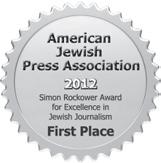

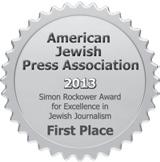

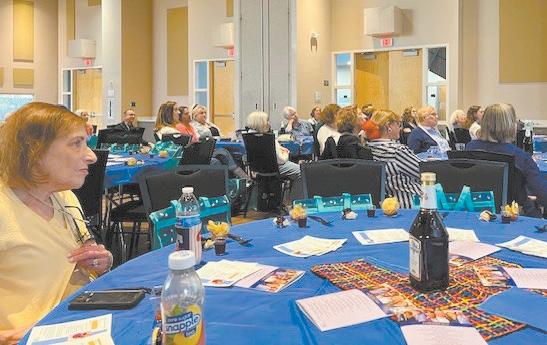


When its makers began in Brooklyn in the late 1920s, there was no easy way to get the process certified as kosher without using nearby grapes. Thus, the company sourced grapes from upstate New York, but “the grape quality was pretty bad, so their solution was to add sugar,” Siva explained. The result was a high-sugar (17%) and low-alcohol (11%) wine, which might not be great to drink but its “sweetness makes it really versatile in many different dishes.”
Siva gave out three recipe cards from her recent book, as well as a sample of the “Mulled Manischewitz” wine, “Chipotle Manischewitz BBQ Sauce” and “Manischewitz Blueberry Compote,” to everyone who attended Sunday’s event. While recounting how she became interested in creating Jewish recipes and answering cooking questions, Siva held the microphone in one hand and made the blueberry compote with the other.
For two weeks every summer, she stayed with her grandmother and spent much of the time in the kitchen watching her cook.
“We’d make chicken soup, brisket, cookies, kreplach and everything. I grew up seeing her cook all the time; my mom cooked all the time and it was such a big part of who I was,” she said.
At 12, Siva told her parents she didn’t want to eat meat anymore. They told her they understood, but she would have to cook for herself. As she became more proficient, she took over making most of the family dinners until she graduated high school. Her love of cooking ultimately led her to culinary school.
When her grandmother passed away in 2018, Siva was living in the United Kingdom and could not get home in time to say goodbye. To cope with the loss, she turned to her kitchen and started cooking her grandmother’s recipes that she had tinkered with to make vegetarian.
“That was when I started my cookbook
proposal, which I thought would just live in my Google Docs until I died.
Thankfully, I followed through and published it a year ago. I have used food as a way to rediscover my love for being Jewish,” she said.
Many attendees asked questions about translating traditional Jewish recipes into tasty vegetarian dishes. Siva said she’s been pleased to see many Jews choose to eat less meat, if not go totally vegetarian or vegan.
“In order for Jewish food to keep going, we need to move with the times, as well, so that people like me or other vegetarians can pass Jewish food down to the next generation,” she said.
She advised which formerly meat dishes could benefit from tofu vs. mushroom vs. jackfruit, why she advocates eating vegetables, whether or not they’re organic, and which of her recipes can be easily used during Passover. She also joked that her attempt to make a vegan Passover bun was an epic fail.
She detailed the time-consuming recipe testing process, explaining that 65 separate people tested the recipes in her cookbook. She gave her most difficult recipes to experienced testers, the easier ones to beginners. Then she took all of

their feedback and worked to understand why some people loved them, and others did not. After redoing recipes that weren’t working and running them back through the testers until they were happy, she sent them to her mom.
“My mom tells me if she’s happy because she has the final say,” she said.
“It was fun, and people really enjoyed the samples. I loved learning the history of Manischewitz sweetening the wine to cover the taste of the grapes,” Shindler told Jewish News.
Michele Gusdorff and her daughter, Allison, both came out on Sunday because they like to cook. Gusdorff teaches Hebrew school at Beth El Phoenix and has taught children’s cooking classes and has experience developing her own recipes.
This was their first Passages lecture, made even more special thanks to some delicious food samples.
“I enjoyed this,” Gusdorff told Jewish News. “She was very entertaining and engaging,”
“Definitely knowledgeable,” agreed Allison. JN
To learn more about these recipes, visit noshwithmicah.com.
“MANISCHEWITZ WINE IS SO NOSTALGIC, BUT IT IS BETTER TO COOK WITH THAN TO DRINK.”
MICAH SIVA


atrocities; that’s not something that I can necessarily impart to them in the classroom,” he said.
He knows from personal experience just how “unspeakable and unbelievable” it can be, but it allows them to have “a personal connection of what it really was about.”
NAU sophomore Rowan Vance, who has family members from the former Soviet Union, wrote a paper on Soviet Jewry immigration to the U.S. and Israel for Krotke-Crandall’s class. The professor told him about the internship and he was hired by the Honors College.
He’s devoted five to six hours a week to the project for months. Vance is Jewish and most of the Holocaust survivor accounts he heard were in documentaries.
“In documentaries, people are stating facts, but hearing it on the tape makes it more real — I could see it happening,” he told Jewish News.
He’s been listening to and reading the accounts of people hiding, escaping and often losing family members, even children, to the Nazis.
“Hearing it personally from someone who was there is much more somber; it makes it almost more real,” he said.
Though it’s sad that these people are now gone, he’s glad they have left their
stories behind.
“I’m fortunate to tell their story,” he said.
NAU sophomore Becca Sandhu, who is not Jewish, saw the flyer for the internship at the Honors College. She liked KrotkeCrandall as a teacher, and felt he’d be good to work with on this project.
“It’s definitely heightening my knowledge of genocide,” she told Jewish News.
As a student of politics and media, this investigation work is teaching her the many correlations between history, politics and how information is conveyed.
It’s also honing her investigative skills. She recently realized that one of the female survivors, whose story she was working on, is related to two other survivors in the collection. Listening to another conversation, this time a male survivor, she pieced together that he was the first survivor’s father. Then Vance told her of a conversation he was working on, and she realized it must be the mother and wife of the first survivor. Untangling it all took careful listening, reading and the patience to go back to work she’d already done.
“The hardest part is trying to correlate the individuals. It’s so close that we can’t see it. I wouldn’t have connected it if I didn’t have those two family members. There’s so much we have to look through and a lot more to the story than we realized. I don’t know if we’ll solve the mystery,”
she admitted. But she’s grateful for the team’s determination to solve as much of it as they can.
“At the end of the day, I’m honored to be part of this project and honor the Jewish community and help give them some closure on these survivors,” she said.
LaCorte was excited to learn of the interns’ findings.
“The family connection happened because the students were talking. That’s what is so fascinating about this,” she said.
There’s a survivor named Rose Jalowiez in the “Delaware” collection. Is she the same person as Rose Jaloviec, a survivor in the AZJHS collection? “The overlap is the part I’m befuddled by,” said LaCorte. But finding the answer is not impossible, it just takes time. Everyone on the team considers it time well spent.
“This is a unique find, and we’re going to solve this mystery. When we do, people in the future will be able to hear their families talk about their experiences,” she said.
There’s a lot they’ve already learned. Many of the survivors in the collection were from Tucson, though some were based on the East Coast. Some of the recordings came from NAU lectures, and NAU Professor Jeff Platt seems to be the person who initiated the project. Fred Petti and Gary Hyde are both alumni who worked on the project. Petti still lives in the Valley and hopefully will be able to shed more
light on the collection.
“It’s one thing to have the collection; it’s another thing to understand how it came about, who collected it,” Krotke-Crandall said.
MSI Director Bjorn Krondorfer was astounded when he first heard about it all, and he’s thrilled by the investigative team’s progress.
“It’s truly amazing what one finds in libraries and archives when least expected. Sometimes, that happens when a new faculty member comes in, takes an interest and follows up — and Karl always has ideas,” he told Jewish News.
Krotke-Crandall is quick to point out that while his fortuitous conversation with a Cline archivist got the ball rolling, it is very much a team effort.
“I’m just one person in a large machine of people here at NAU who understand the significance of this, and there’s a massive network of support on this campus for this project, for Holocaust education and for expanding our students’ experiences,” he said.
When the questions are answered and the mystery revealed, everyone expects to showcase the collection at NAU before sending it to a permanent home at the USHMM.
“It’s important to keep something of this project here,” Krondorfer said. “It’s a great story.” JN

Invites you to our Community Seder April 11, 2025 at 5:30 pm


Reservations required; cost is $60.00 per person. Visit our website at www.bethamitemple.org See Special Events Tab to make a reservation
(Include # of attendees, food selection, and payment) Deadline is April 7, 2025
The Community Seder will be in our Sanctuary located at 4027 E. Lincoln Dr. Paradise Valley 83253 (Unitarian Universalist Congregation) www.bethamitemple.org bethamitemople35@gmail.com 602-956-0805


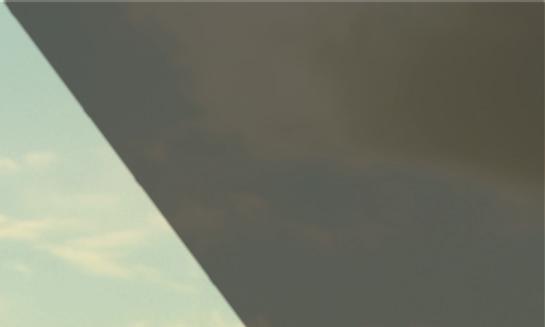












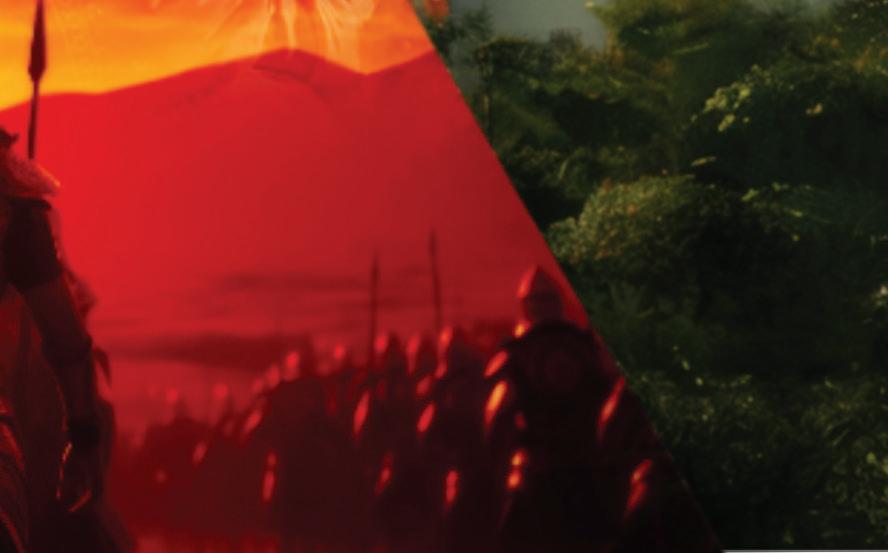





SHANNON LEVITT | STAFF WRITER
Each May, Jewish American Heritage Month highlights Jewish Americans’ contributions to the nation. This year, Desert Foothills Library in Cave Creek is getting ahead of the action in celebrating Jewish culture. From now through the end of April, the library is hosting the “Jewish Culture & Heritage Festival,” a multifaceted and interactive experience.
“We’re leaning into Jewish Heritage Month, and we wanted to be early. We also wanted the chance to give the thousands of winter visitors the opportunity to come,” Blythe Sweeney told Jewish News. Sweeney is the library’s director of development.
The festival will reflect different parts of the Jewish story by showcasing various Jewish beliefs, customs, food and Arizona Jewish history, as well as highlighting Jewish artists, authors and filmmakers through activities, exhibits and programming. Given that Passover takes place during the festival, the library even offers a presentation on charoset and the Seder plate.
The idea for the event began percolating nearly a year ago. After speaking with several Jewish patrons, who are mainstays at library activities, a few library staff (none of whom are Jewish), decided to combine several elements of Jewish culture, including art, books, cooking and more, to create an entire festival, a first for the library.
Last fall, Kiersa N. Holleschau, the library’s adult program coordinator, started reaching out to various people in Cave Creek, Carefree and the surrounding environs to explain the concept of the festival and find people who could assist. There are several Jewish volunteers at the library to lean on. One was able to put Holleschau in touch with a number of local Jewish artists.
“We put together an exhibit of nine local Jewish artists and it’s turned out amazingly well. I learned a lot about the Jewish faith and about art!,” she told Jewish News.
The art exhibit, “Story Keepers,” celebrates Jewish history and traditions

through various media, including textile, encaustic, watercolor, glass and mixed media. Related workshops will allow visitors to engage in a dialogue with the artists about their work.
Another Jewish library volunteer, who leads three different book clubs, also introduced Holleschau to local Jewish authors.
“It was just a matter of reaching out to people we already knew in our library community, as well as the larger community,” she said.
Holleschau also participated for the first time in last December’s annual Chanukah in Carefree event. The eighth night focuses on the greater community, and this was the first time Desert Foothills Library took part officially. There, she met even more people, including Phoenix Holocaust Association members who suggested local Holocaust survivor Dirk Van Leenen, as a speaker for the festival.
Executive Director Debra Lay praised Holleschau’s successful outreach to the community.
“Kiersa has made a great connection with the community in preparation for the festival, gleaning support from those who would like to help,” Lay told Jewish News.
Interest in Jewish culture isn’t only coming from Jewish library patrons. Many non-Jews have expressed an interest in finding out more about it, Sweeney said.
With Jewish American Heritage Month just around the corner, now seemed like the perfect time, she said, adding that by including so many activities for children, the festival is family friendly.
“We want to engage the audience, so we have built in discussion groups allowing people to reflect on their experience and share their perspective,” Sweeney said.
During the last two weeks of March, the library is offering “The Journey Back,” a special virtual reality (VR) experience borrowed from the Illinois Holocaust Museum.
This is one of the festival highlights Lay’s most excited about. “I can’t wait to unpack the VR glasses!”
The Red Rocks Music Festival in collaboration with the Jewish Community of Sedona & the Verde Valley, 100 Meadowlark Dr, will present violinist Moshe Bukshpan with pianist Lali Breen on April 27th, at 3:00 pm. The program includes selections by Bach, Mozart, Kreisler, and melodies from Fiddler on the Roof, Jerusalem of Gold and the theme from Schindler's List, dedicated to Yom Hashoah.


Visitors attending the festival, or anyone coming through the library, will be able to experience Holocaust sites virtually and watch Holocaust survivors recount their stories.
“It will be very sobering and educational. We think people will want to stick around after a presentation and try it out,” Lay said. Sweeney finds the festival’s diverse programming exciting.
“It offers so many engaging things, and everyone can participate. This unique programming will open the door to everyone in the community,” she said.
Holleschau has enjoyed the challenge of putting together her first adult-themed program for the library, but when it comes to choosing what she’s most looking forward to, “it’s hard to pick,” she admitted.
“I’m excited that it’s finally pulled together, and I had a great time putting it together and meeting the artists and other presenters. I’ve gotten to know so many of them,” she said.
The library staff was quick to thank the Molly Blank Fund for its underwriting support, as well as the Center for Jewish Philanthropy of Greater Phoenix for developing and administering the grant funding. JN
For more information, visit dfla.org. Jewish News is published by the Jewish Community Foundation of Greater Phoenix, a component of the Center for Jewish Philanthropy of Greater Phoenix.

This month, local Holocaust survivor Charlotte Adelman published “Charlotte: A Holocaust Story of Strength, Courage, and Hope.” The memoir was written by Jewish News’ Managing Editor Mala Blomquist, and includes Adelman’s earliest memories of growing up in France, the years she spent in hiding from the Nazis, her reunion with her father, who was part of the French resistance and finding her brother after the war. Sadly, her mother was murdered in the Holocaust. Instead of concluding with the end of World War II, “Charlotte” also recounts her experience of a terrible early marriage
in France, her move to Canada, learning English, finding work, and eventually love, in the United States.
Blomquist has a decade of experience writing the stories about the Jewish community in the Valley, including Holocaust survivors. She met Adelman in 2018 for an article. After its publication, Adelman’s daughter reached out to Blomquist to ask for names of possible authors for her mother’s memoir. After considering some names, Blomquist decided she would like to try her hand at writing the book.
The 25th annual Phoenix Film Festival will spotlight four films with Jewish stories and themes.
One of those films, “Among Neighbors,” is a documentary about the Holocaust with a unique twist. The film investigates the story of a small Polish town, whose pre-World War II existence included Jews living in relative peace with their non-Jewish neighbors. The film focuses on the only living Holocaust survivor from the town, and an aging eyewitness who saw Jews murdered there — six months after the
Nazis were defeated.
In the film, the town’s oldest residents break decades of silence, sharing secrets they have carried for a lifetime. Their stories are brought to life with animated sequences and touches of magical realism.
Anita Friedman, the film’s executive producer, has worked on this film for the last 20 years.
“It took a lot of research to reveal the secrets, and we’ve also spent a lot of time talking about the current situation in Poland and how to connect the dots,” Friedman
ADL-Desert hosts first conference on antisemitism and hate next month
Next month, the Anti-Defamation League (ADL) Desert will host “Rising Above Together” in Tempe. The conference, focused on combating antisemitism and hate, is being held in partnership with Arizona State University. It’s a first for ADL-Desert, which is planning to make it an annual event.
“The primary role of ADL is to provide education and resources to combat antisemitism in our community. This program will do that,” Deputy Regional Director for ADL’s Desert Region Sarah Kader told Jewish News.
The conference on Friday, April 11, will be divided into five different tracks after introductory remarks by Eric Ward,
executive director of Western States Center, and Oren Segal, vice president of ADL’s Center on Extremism.
The conference will also include business, education and faith leaders, law enforcement and elected officials, including Arizona’s Attorney General Kris Mayes.
“The goal is to bring together communal leaders from various sectors to learn from experts on antisemitism, make connections with each other and leave with a greater understanding about how to fight it when they see it,” Kader said.
She hopes that participants make connections and leave the conference with “a greater understanding of what antisemitism is and how to fight it in their
rabbi selected as Rukin Rabbinic
Congregation Or Tzion Rabbi Andy Green has been selected as a Rukin Rabbinic Fellow for 18Doors, an organization dedicated to assisting people in interfaith relationships — individuals, couples, families and their children — engage in Jewish communal life.
Green is part of the fellowship’s fifth cohort, along with 19 other rabbis throughout the United States and Canada. They will join a network of 63 rabbis across 31 communities
in North America who are currently participating in, or who have completed, the fellowship since its launch in 2019.
The fifth cohort includes a diverse group of rabbis who have been ordained by six different rabbinical schools and are affiliated with the Conservative, Reform and Reconstructionist movements, as well as rabbis who are not members of a particular movement.
“I’m looking forward to meaningful Torah
The 29th Annual Greater Phoenix Jewish Film Festival (GPJFF) concluded by setting new records in 2025. This year, the festival showed 28 films, and ticket sales increased 43% last year.
enthusiasm for Jewish storytelling through film,” stated a press release.
The opening night film, “SODA,” which played at the Scottsdale Center for the Performing Arts, sold out an 800-seat theatre.
“I always wanted to write a book, and Charlotte’s remarkable story touched me. It is an honor that she trusted me to share her life story,” Blomquist said.
The two spent many Sunday mornings together, during which Adelman told her life story to Blomquist. The COVID-19 pandemic interrupted these meetings, but they regrouped in 2021.
Adelman and Blomquist will make their first book appearance on March 30 at 12:30 p.m. at Beth El Phoenix, where Adelman is a longtime member. The book will be available for purchase and signing at the event. JN
told Jewish News.
The town at the center of the movie is where her family came from. The story is that of the past, present and future for both Poland and the Jewish community,” she said.
“It’s a mystery, a love story, an engaging and entertaining film that is also an educational documentary,” she said.
In addition to premiering the film in Phoenix and other large city film festivals, she hopes to use it as a teaching tool in high schools all over the country.
sectors or communities.”
The title of the conference was chosen very carefully. “Rising” refers both to the city of Phoenix and to the mythical creature that rises from the ashes. “Above Together” was chosen to convey the idea that everyone must work together.
“We need each other,” Kader said. “We want to talk about hard things in a way that builds relationships and leaves people feeling connected and uplifted, feeling they have tools to fight hate.”
The conference will close with a panel of both Jewish and non-Jewish community leaders, who will discuss successful ways they’ve found when it comes to finding compassion and fighting hate.
learning, building and deepening relationships with colleagues and exploring strategies to engage those too often pushed to the periphery of the Jewish community,” Green told Jewish News.
The fellowship begins in May, at which point he’ll have more details to recount.
The Rukin Fellowship hopes to equip rabbis with tools and training to advocate for greater interfaith inclusion in Jewish
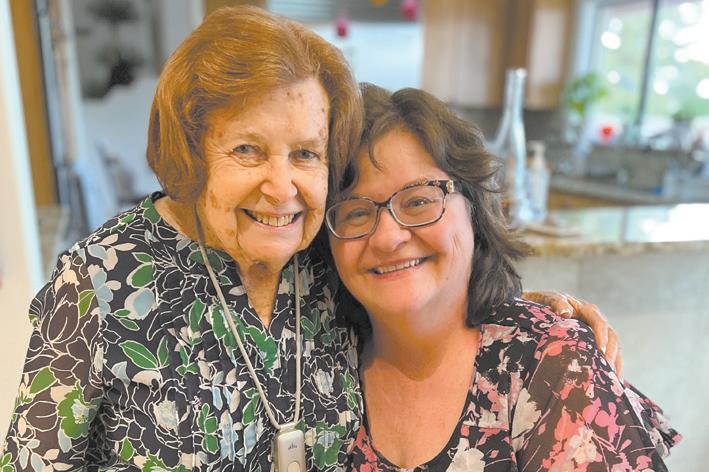
For more information, go to bethelphoenix.com/
or charlotteadelman.com.
At the two Phoenix screenings on March 30 and 31, filmmaker Yoav Potash will be at the theater to introduce the film and answer audience questions after the film.
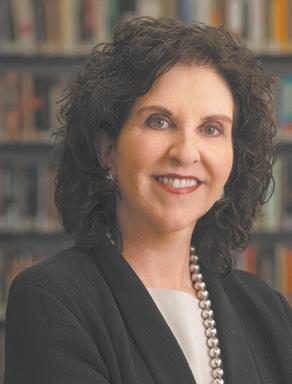
The other Jewish-themed films are “One Big Happy Family,” “The Stamp Thief” and “Colleyville.” The festival runs from March 27 through April 6. JN
For more information, visit phoenixfilmfestival.com.

“We hope people leave feeling energized, inspired, like they have learned something new and can go back to their day to day with concrete steps to fight hate,” Kader said. JN
To learn more, go jewishphoenix.com/events/ adl-summit-on-antisemitism-and-hate/.
life and to engage more wholly with interfaith couples and families. Through professional development, it will teach participants to address the unique needs of this population to enhance the sense of belonging for these individuals. JN

“The Catskills” and “Bad Shabbos” also played in Peoria, which usually has lower attendance. But this year, the West Valley also showed out its showings.
GPJFF plans to make next year’s 30th-anniversary festival “even more spectacular.” JN Local Holocaust survivor publishes memoir
The fact that the festival drew the largest crowds it has since it began, led the directors of the event to feel that it reflects “a growing
The comedy “Bad Shabbos” also played to full houses in 10 theaters across the Valley, proving to be a festival favorite.

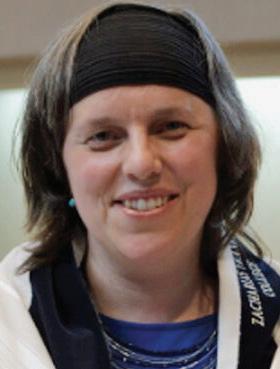
RABBI NITZAN STEIN-KOKIN
PARSHAH PEKUDEI: EXODUS 38:21 - 40:38
Thus was completed all the work of the Tabernacle of the Tent of Meeting.
The Israelites did so; just as the Eternal had commanded Moses, so they did. (Shemot/Exodus 39:32)
With this week’s parshah, the construction of the movable Mishkan (God’s temporary dwelling place among the Israelites) in the wilderness comes to a close. The description of the design, the building and the details of this sanctuary takes up in total four and a half out of 11 parashiyot — weekly portions — quite a significant portion of the whole of the book of Exodus. Considering that this is only the movable temporary sanctuary (later permanently replaced by the Temple in Jerusalem) one wonders why our Torah spends so much time and effort in recording. What is it about this mobile sanctuary that is of such importance?
This mobile sanctuary was a collective endeavor!
It was built by the people as a whole as we can see in the verse quoted above summarizing the collective effort and crediting the whole people:
“The Israelites did so, just as the Eternal had commanded Moses, so they did” (Exodus 39: 32).
As becomes clear throughout the previous chapters people from all backgrounds “whose heart moved them so” participated in creating and completing this sacred space: “And let all among you who are skilled come and make all that the Eternal has commanded: (Exodus 35:10)”, and “everyone who excelled in ability and everyone whose spirit was moved came, bringing to the Eternal an offering for the work of the Tent of Meeting and for all its service and for the sacral vestments. (Exodus 35:21)
Prof. David Frankel from the Schechter Institute for Jewish Studies in Jerusalem writes that this may teach us today that “movable sanctity, the holiness of a place is defined by the presence of the people of Israel rather than by the location itself….
The Mishkan reminds us that sanctity is not inherent in a place but rather created by the people. It must be continuously renewed through active participation and communal effort.”
As I search for understanding in our ancient texts, this perspective gives comfort in difficult times. Comfort and courage, since the example of the portable Mishkan (sanctuary) of ancient days means that we as a people can create a sacred space for God’s healing presence to be in our midst, wherever we are. And not only a few are chosen but we all are needed. We all need to be present! And if we are, if we all put our heart into it, we can create holiness among us even across the divides of ideological differences, denominations and economic status or ethnic origins.
This is not a new idea. I stand on the shoulders of giants. One such example is the early modern commentator Hayyim Ibn Attar, the Or HaHayyim, an outstanding Moroccan Jewish Kabbalist and leader of Moroccan Jewish resettlement in Israel in the 1700s who writes in a similar spirit:
“The Torah was given to be collectively observed by Israel as a whole. Each individual would contribute his best to their mutual benefit. Perhaps an allusion to this can be found in [the verse] “And you shall love your neighbor as yourself” implying “[your neighbor] who is as yourself”...
SHABBAT ENDS MARCH 29 - 7:24 P.M. APRIL 5 - 7:29 P.M.
Your neighbor’s welfare will contribute to yours and through him you complement your own perfection, … The almighty gave us 613 precepts and it is impossible for one man to observe them all. There are for example Priests, Levites and Israelite men and women. In what way is it feasible for the individual to observe all [the Mitzvot]?... The answer must be that the Torah can be observed collectively, by all people as a whole, each individual deriving benefit from the observance of his neighbor and each individual’s performance complementing that of the other.”
In difficult and divisive times, we Jews are charged to remember that each of us can and must contribute to the welfare of the other through our honest engagement. If we do so together, we are able to create a sacred space to draw upon the uplifting presence of the infinite source of life in our midst. Shabbat Shalom and a Zissen Pessach! JN Rabbi Nitzan Stein-Kokin is the spiritual leader of
JEFF ZEMAN | JTA
We can’t make antisemitism go away by censoring antisemites.
Nevertheless, the Trump administration has said it is combating antisemitism at Columbia University by canceling $400 million in funding and detaining a former student over what the president has vexingly called “illegal protests” against Israel. Some Jewish groups are applauding the effort. But as an American Jew and free speech lawyer, I can tell you that protest alone isn’t illegal — and that giving the government the power to punish hateful speech will only erode our own right to speak out against hate.
In the wake of the Oct. 7, 2023, attack led by Hamas, protests erupted on campuses nationwide. Some of the activities by student protesters were unlawful, like blocking fellow students from entering parts of campus or occupying buildings. But many students engaged in pure speech by marching, displaying signs, or shout-
ing slogans. These are protected forms of protest in our country.
Jews have a vested interest in ensuring American civil rights protections remain in full force. The First Amendment guarantees not only the freedom to practice our religion in this country, but our ability to speak out when our rights and lives are in danger.
But we endanger the ability to speak out when we allow the government to erode our First Amendment protections. That’s why White House statements threatening punishment for anti-Israel speech should have all Americans concerned.
Regarding the arrest of Palestinian protester Mahmoud Kahlil by U.S. Immigration and Customs Enforcement, President Trump said, “We will find, apprehend and deport these terrorist sympathizers from our country — never to return again.” Secretary of State Marco Rubio posted an advisory from the
Department of Homeland Security saying that Khalil had “led activities aligned to Hamas,” and has also claimed the power to deport a legal resident whose activities “would have potentially serious adverse foreign policy consequences for the United States.” But those justifications could describe Khalil’s on-campus protests, including his protected speech.
Threatening to deport Khalil without accusing him of any crimes chills speech. And that threat extends to everyone, no matter what side of the Israeli-Palestinian debate you are on, or whether you are promoting or combatting antisemitism.
The Trump administration’s pledge to remove “pro-Hamas” students, coupled with Khalil’s arrest, make it hard to see the administration’s actions against Columbia as anything other than attempts to police campus speech.
To be sure, it has been a difficult year for Jewish college students, and there have
should be a maximum of 200 words. They may be edited for space and clarity. Unsigned letters will not
been documented instances of bad actors preventing them from getting to class, or even assaulting them.
I’m no stranger to fear of the recent public increase in antisemitism. Last year, given online antisemitism approaching the anniversary of Oct. 7, my wife and I chose to keep our daughter home from her Chabad preschool that day. The current political moment terrifies me. Antisemitism is coming from both sides of the political spectrum, and it feels like there is nowhere to run. So instead, I think we should fight.
But allowing the government to ignore our rights to free speech would only deprive us of our most powerful weapon. JN
The views and opinions expressed in this article are those of the author and do not necessarily reflect the views of JTA or its parent company, 70 Faces Media. This piece has been edited for space. Visit jewishaz.com to read it in its entirety.
RAUN MELMED MD, FAAP | SPECIAL TO THE JEWISH NEWS
Any good parent would wish good self-esteem for their children! For some, self-esteem seems to come naturally and easily; however, when a child has a poor self-image, they may need support. Now is the time to act.
Self-esteem is the capacity to feel good and comfortable with oneself. Children with good self-esteem have confidence in their worth, or abilities, and a sense of self-respect. They can approach problems with self-assurance and build positively on their own experience.
Those with good self-esteem are more equipped to cope with mistakes, try harder and eventually are more likely to succeed. These children are willing to take on challenges with an “I’ve got this” attitude. “I will do a good job and be proud,” they might say, and they are willing to ask others for help. When they fail, they can bounce back and try harder. Children with low self-esteem often feel unsure of themselves. They have a tough time dealing with mistakes. They lack task persistence and give up easily when difficulties are encountered. They might think they will not be accepted by others and therefore might let others treat them poorly in a sad attempt to fit in. They rarely stand up for themselves, don’t try as hard and give up easily, fearing failure. They might prefer to act goofy or inappropriately to deflect the challenge.
As a result, they often feel frustrated, angry, anxious or sad. They may have difficulty making and keeping friends and might even get teased or bullied, feeling alone and unpopular.
Some kids might appear disengaged and unwilling to try new things. They might say, “Bad things always happen to me.” “Everything I do is wrong.” “Things will never get better.” “I’m not very good at anything.” “I’m not as good
as other kids.”
One surefire way to enhance selfesteem is for a child to independently succeed at a challenge of their own making, thereby strongly reinforcing internal gratification.
Parents might also facilitate that same process by allowing a child to face a challenge and letting them succeed at it. In both contexts, the ripple effects of pleasing others and receiving accolades for a job well done, not to mention that internal gratification, will spread far and wide with unanticipated consequences and raise self-esteem to boot. That leads to improved confidence in facing the next challenge. Now that’s a cycle worth repeating!
This approach can be effective even if mistakes are made and the outcome is not perfect. When children fail but nonetheless understand where they went wrong, they can succeed the next time. Developing confidence will allow the child to try again while at the same time taking responsibility for the outcome. Getting up off the mat and trying again with tenacity and grit are the hallmark ingredients for making a winner!
However, making things too easy for children and praising feeble attempts does not improve self-esteem. Rather, these are soon-forgotten oxytocin jolts that do not bolster self-confidence.
Allowing your child space to try and succeed — or try, fail, try again, and succeed — while offering loving support along the way, will build a foundation of confidence necessary for healthy selfesteem.
As a parent, you can set up opportunities for rewarding challenges, such as taking training wheels off a bike, reading a chapter book or maybe this year, reciting the Four Questions at the Seder.
The notion is that if one does the
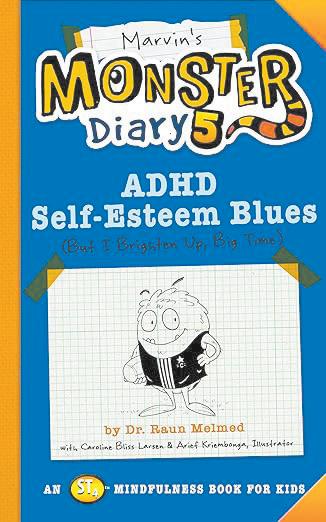
work, self-esteem will follow; avoid the work, and confidence drops and behavior worsens.
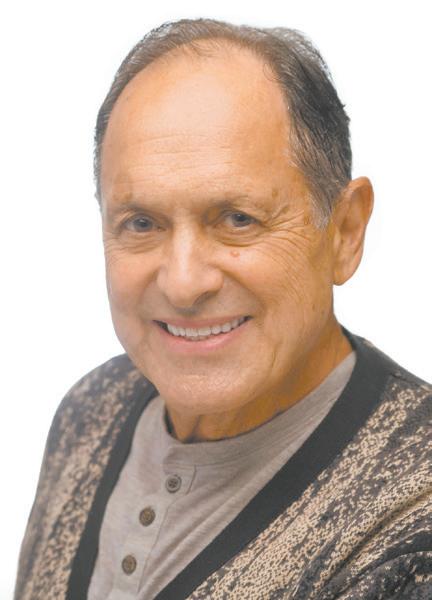




Self-esteem comes from overcoming a challenge, regardless of the degree of difficulty. This is not a simple quest for perfection. Mistakes must be allowed! Continue to individualize the challenges by balancing expectations and abilities, adjusting to ensure the goals are attainable and realistic, all the while celebrating each specific baby step along the way.
Praise must be specific — not simply “Good job” or “Atta boy,” but rather “I like the way you cut straight on the lines!” Praise effort — even the baby steps.
When a child completes a task, rather than praising the result, we can focus on praising the effort and the work. “I see that you spent a long time on creating this picture,” can be more effective than “this is a beautiful picture.” Be sure to be genuine, otherwise your child will see right through your praise.
As an authoritative parent (nurturing, responsive, respectful, resourceful), explain to your child that you have learned things from others that might be useful — such as “good feelings follow good deeds,” and those actions produce self-esteem!
Encourage learning skills, such as doing a fun dance; starting a collection of gems, silly socks or plants; reading up on animals; engaging in unique crafts such as macramé; making funny videos; or writing stories. Come up with volunteer projects, such as helping at an animal shelter or a home for the elderly, picking up trash at a park or reading to those who are visually impaired. These experiences will have enormous payback. One key aspect of self-development is enhancing agency, the notion that one can be their own best instrument of change. Help your child practice internalizing positive affirmations and self-talk, the inner conversations they can have with themselves to tell themselves kind things. This leads to introspection and mindfulness, key ingredients to agency. Thereby, parents can help their children move from being selfdenigrating to becoming self-aware. Authoritative, resourceful and loving parents can raise children with great selfesteem! JN
Raun Melmed MD, FAAP, is the co-founder and medical director of the Southwest Autism Research and Resource Center and medical director at Scottsdale Cortica. He is the author of ST4 (Stop! Take Time To Think!) Mindfulness Books for Kids, including “Marvin’s Monster Diary, ADHD Self-Esteem Blues (But I brighten up Big Time).” His books are available on Amazon.
RACHEL WINTER | SPECIAL TO THE JEWISH NEWS
Do you feel overwhelmed because your home is a cluttered mess? Are you stressed out with too much stuff? Does it seem like you are always cleaning and tidying up, but your home is still out of control? Do you wish that everybody in your family would pitch in more and help?
Just know, you are not alone. Many people feel like this. In today’s fast-paced world, keeping a family organized can feel like a daunting task. However, with a little strategy and cooperation, it can become a manageable — and even enjoyable — part of family life.
Here are some easy tips that will help you achieve organization at home, ensuring that everyone contributes and learns valuable life skills along the way.
The first principle of organization is simplicity: having less stuff. In a society that often encourages consumerism, it’s easy to accumulate items that ultimately clutter our lives. Regularly purging unnecessary items is not just a chore; it’s a celebration of progress.
Think of decluttering as helping your home to lose weight. You want your home to feel lighter. Not heavy with all that weight of clutter.
Take time as a family to go through belongings and decide what to keep, donate or throw away. Really be in the mindset of “use it or lose it!” Only keep what you really use, wear or is sentimental. The best of the best.
Teaching our children the importance of decluttering and donating is also an important life skill. Feel good about letting things go that are no longer serving you. After all, one man’s trash is another man’s treasure!
This process not only clears physical space but also mental space, making it easier for everyone to find what they need. It’s also much easier to clean, vacuum and dust when you have less stuff around.
Benjamin Franklin famously said, “A place for everything and everything in its place.” This statement holds profound wisdom. Establishing homes for every item in your home helps everyone know exactly where things belong.
Use labeled bins, shelves and hooks to create designated spots for everything — from toys and books to shoes and tools. Involve your family in this process; when everyone knows the system, they are more likely to maintain it.
Organizing is all about neighborhoods. Zones. Store items where they are easily
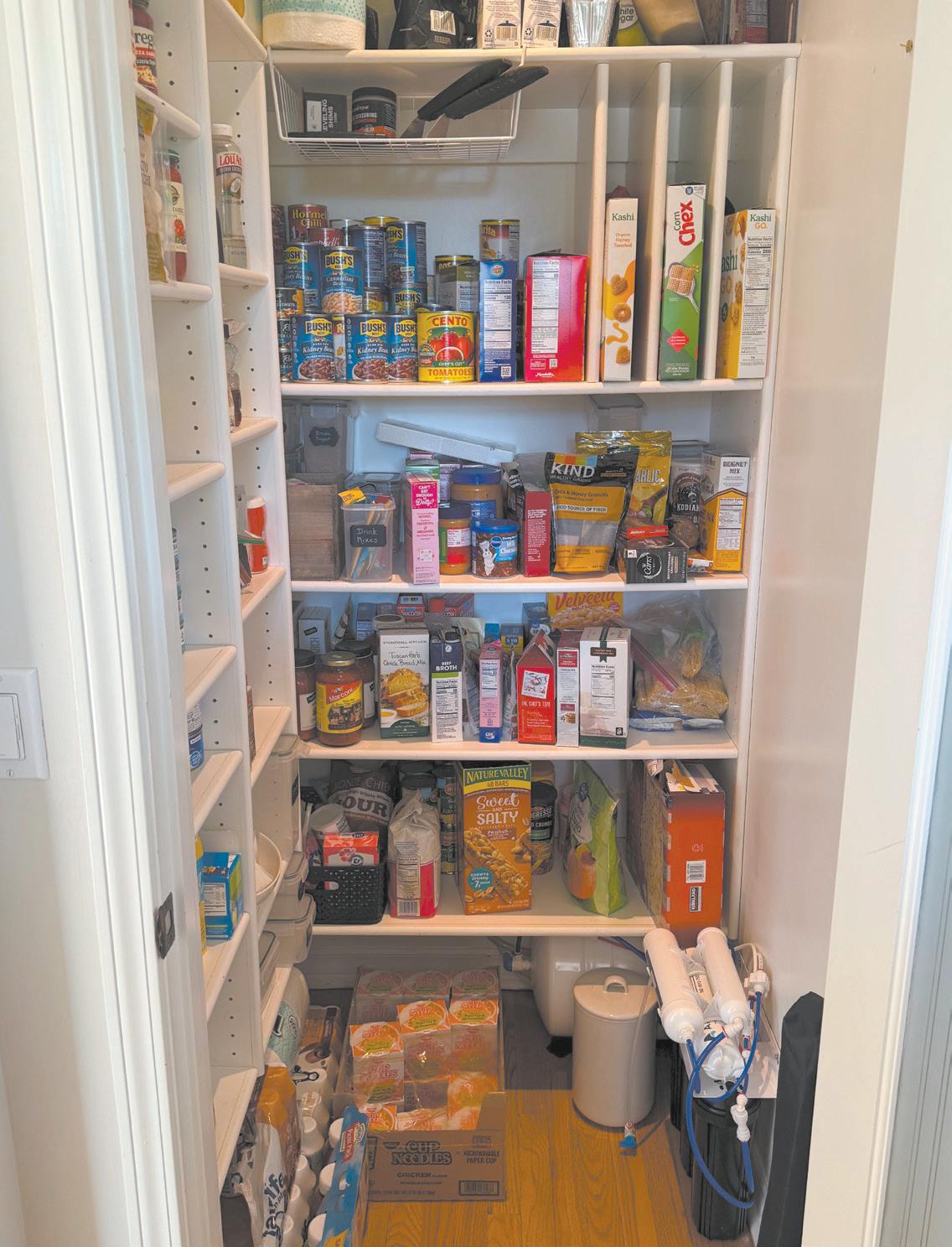
visible and accessible. No digging for things!
Once you’ve done the decluttering or purging and you have an organized system in place, it’s crucial for everyone to do their part to put things away where they belong.
Encourage family members to adopt the habit of returning items to their designated homes after use. If you use something, put it back where it lives.
This simple action can significantly reduce clutter and maintain the organization you’ve worked hard to achieve.
Young children learn through play. Try and make cleaning and organizing a fun game! If toys, books, clothes, shoes or any children’s items need to be put away, tell them the items are lost. Will they please help them find their way home? Be clever and use some imagination. Remember the song “Clean-up, clean up! Everybody, everywhere! Clean-up, clean-up! Everybody do your share!”
Think of organizing your home as one gigantic jigsaw puzzle. Imagine every item in your home is a puzzle piece and you want all the pieces to fit together nicely. Have fun figuring out where everything should live. Again, the goal for every cabinet, closet or drawer is to have everything be easily visible and accessible. You want to find what you

need, when you need it. Not a month later! Every family member plays a vital role in keeping the home clean and organized. When everyone helps and does their part, the family unit becomes more efficient and harmonious. Assign specific tasks to each family member based on their age and capabilities. For example, younger children can be responsible for putting toys away, while older kids can tackle their own rooms or help with chores in common areas.
Organizing doesn’t have to feel like a punishment. In fact, it can be a fun family activity! Turn it into a game by


setting a timer and seeing how much you can accomplish together in a short period. Create a reward system for chores completed or have a family competition to see who can find the most items to donate. By making organizing enjoyable, you instill a positive attitude toward maintaining a tidy home.
Organizing is not just about cleanliness; it’s about teaching children essential life skills. Encourage healthy organizing habits
by integrating them into daily routines. For instance, making your bed every morning is one of the healthiest habits you can cultivate. It’s a simple task that sets a productive tone for the day. Likewise, establish an evening routine where everyone checks common areas to ensure there are no dirty dishes on the counter or in the sink. This habit fosters respect for shared spaces and teaches accountability.
Common areas, such as the living room, kitchen and bathrooms, should be treated with care and respect by all family members. Establish guidelines for maintaining these spaces, such as cleaning up after meals or putting things back where they belong after use. Encourage open communication within the family about any messes that need attention, promoting a sense of shared responsibility.
1. Home for every item: As mentioned earlier, each item should have a designated place. This will help eliminate clutter and streamline the process of tidying up.
2. Like with like: Group similar items together. This means keeping toys
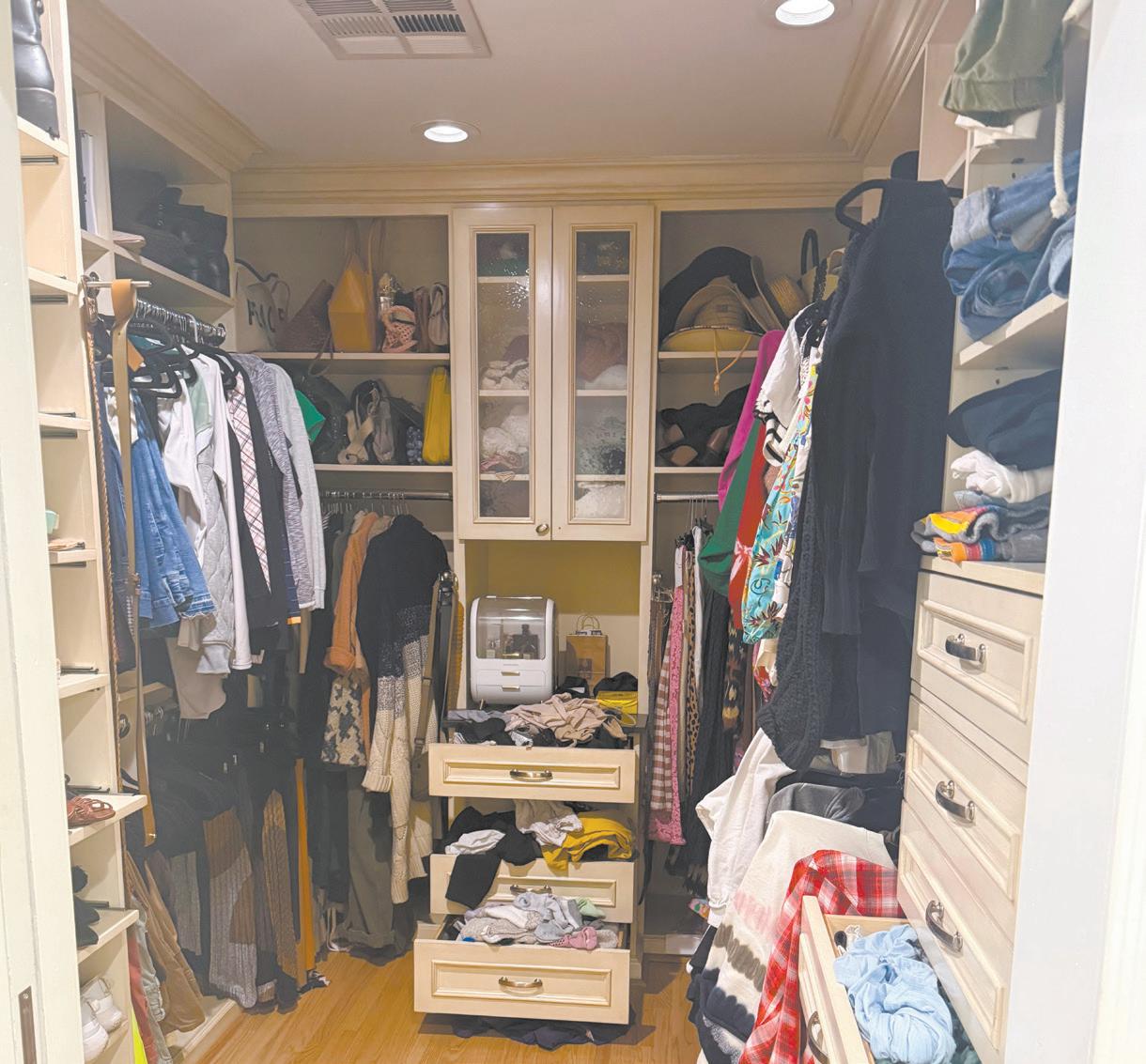
with toys, books with books and kitchen utensils with kitchen utensils. Mixing categories can lead to chaos and confusion, making it harder for everyone to find what they need.
3. 1 in, 1 out: To keep clutter at bay, adopt the “1 in, 1 out” rule. For every new item that comes into your home, ensure that an existing item is donated or thrown away. This practice prevents accumulation and encourages

mindfulness about what you truly need. You don’t want TMS — Too much stuff!
Keeping a family organized may seem overwhelming, but by simplifying your belongings, establishing homes for items and involving everyone in the process, it can become a seamless part of family life. Remember the 3 Golden Rules and make organizing a fun and engaging activity. Once your system is in place, consistent
effort from everyone to return items to their designated spots will make all the difference. Not only will this create a more harmonious living environment, but it will also teach your children valuable skills that will serve them well throughout their lives. JN
Rachel Winter is a declutter coach, professional organizer, founder and owner of Happy Home Organizers, LLC. For more information, call 602469-5950 or visit happyhomeorganizers.com.


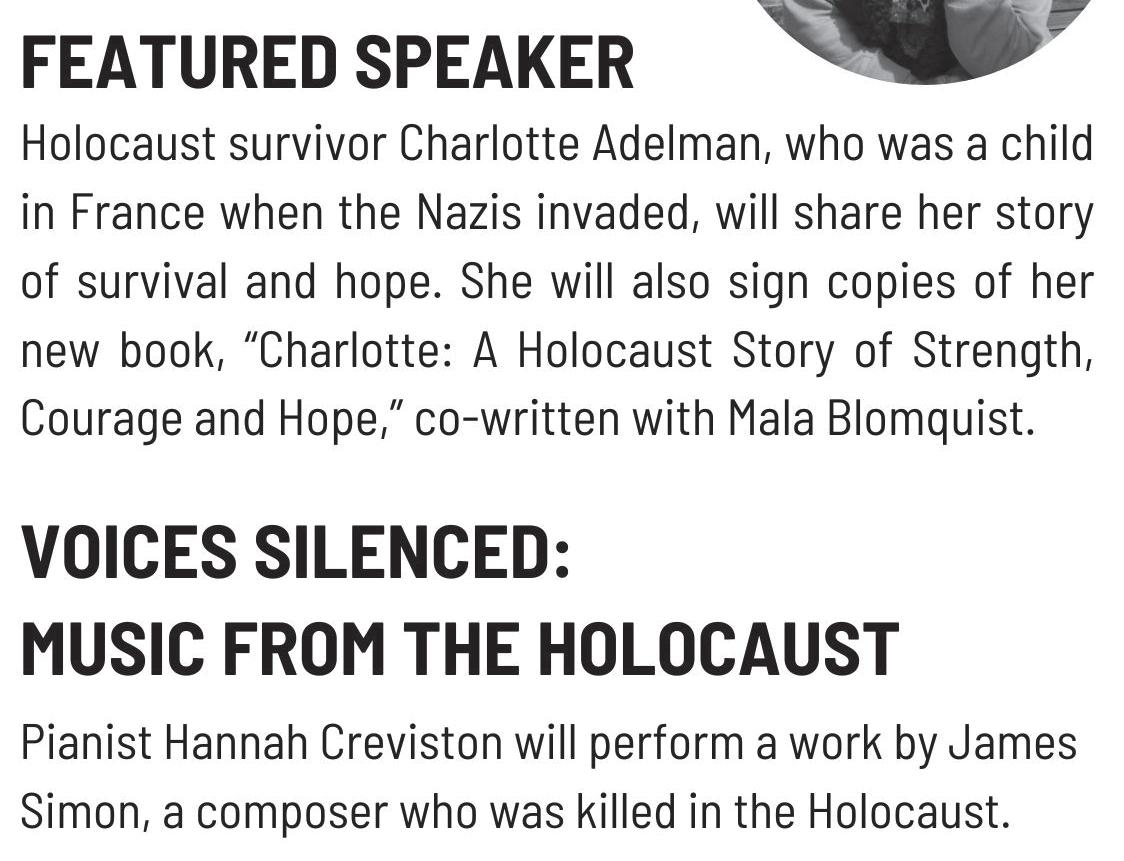
















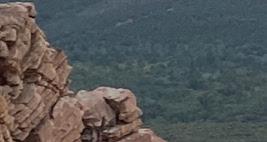




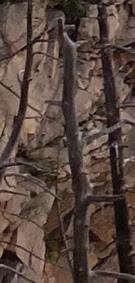
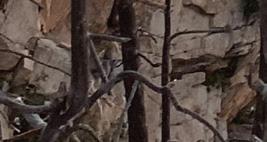
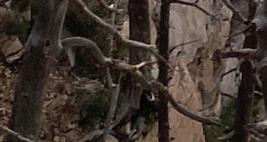








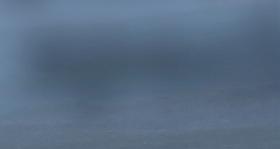









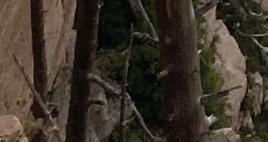








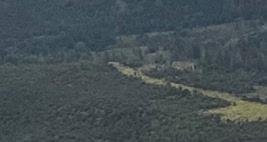







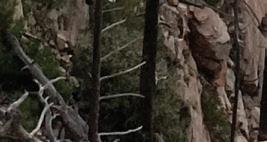












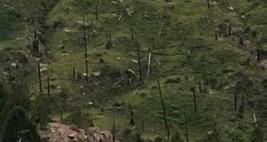


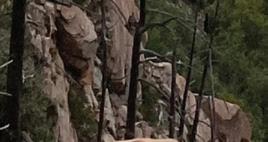












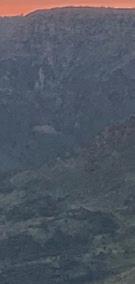


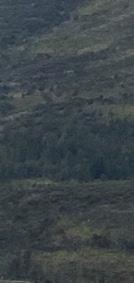


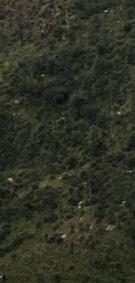


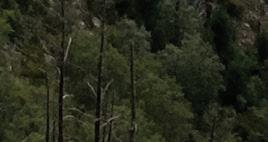








It’s good for your heart
Congregation Beth Tefillah’s Babyccino, a mommy and me group hosted by Dr. Abigail Gewirtz, during its recent weekly Tuesday meeting. Gewirtz is a child psychologist and spoke about mindful parenting.


Ellen Shulman Tuckman, right, and Helena Feldman Nathan celebrated the 69th anniversary of their b’nai mitzvah in February. Nathan traveled from New Orleans to join Tuckman at Congregation Beth Israel in Scottsdale, where they both took turns reading from their Torah portion.
I’ll take a big check
Lilach Mazor Power, Jewish entrepreneur, owner of the Giving Tree Dispensary and founder of the pre-roll brand Sneakers, hosted a $10,000 giveaway in February. Here, she presents a giant check for $10,000 to military veteran, Matthew Sabo.
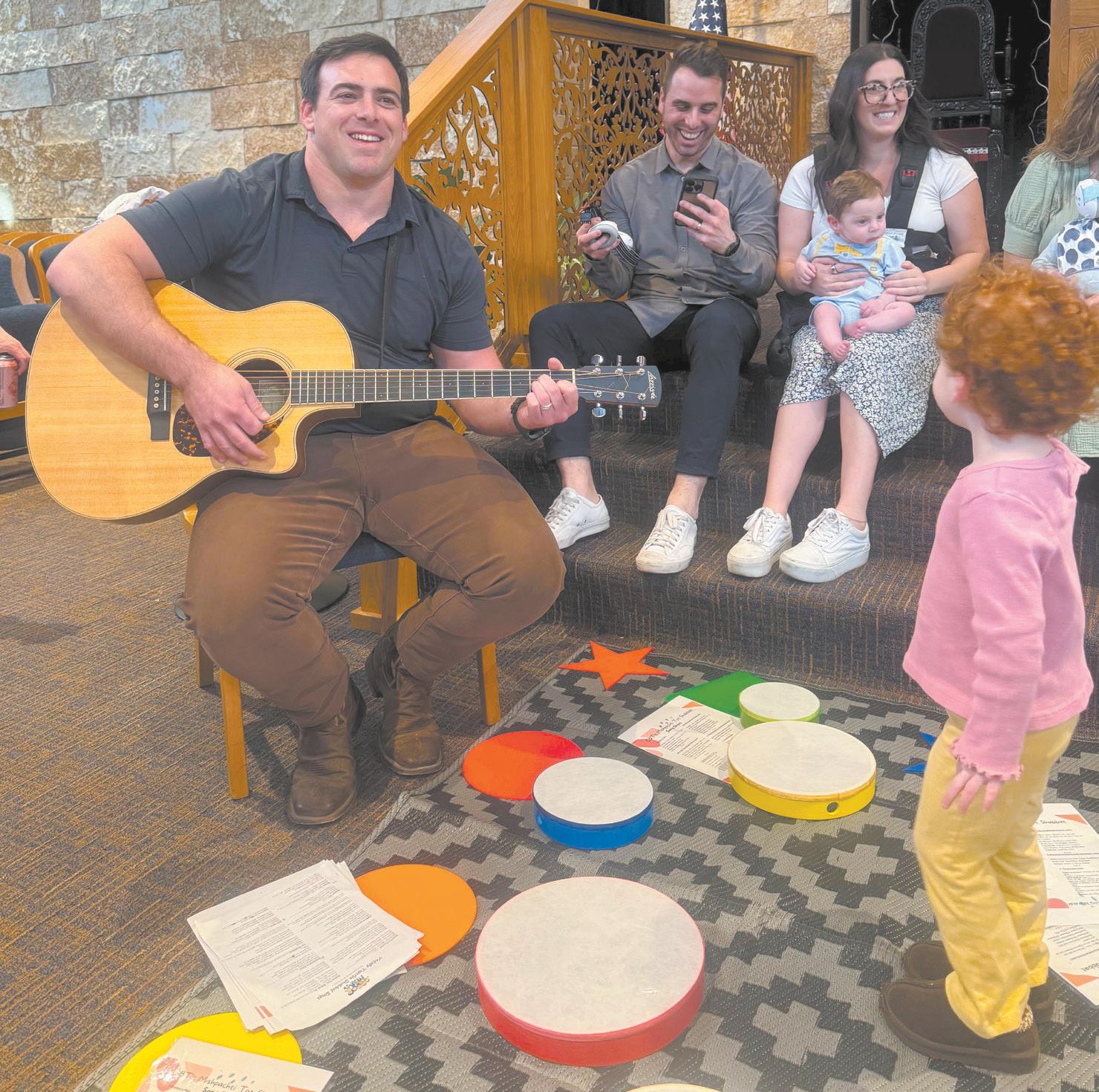
That’s a long time!
Colton Rahav leads young families as they sing Shabbat songs at Congregation Beth
Tot Shabbat. The program will take place before Shabbat every month.
On Tuesday, Feb. 25, Temple Kol Ami’s board of trustees unanimously voted to extend Cantor Noa Shaashua’s contract for five more years.
Temple Solel hosted its annual fundraiser, “Solelebration,” on Saturday, Feb. 8., and honored Rabbi John and Nancy Linder on their 17 years of leadership of the Paradise Valley congregation.
This COMMUNITY page features photos of community members around the Valley and the world. Submit photos and details each week to editor@jewishaz.com by 10 a.m. Monday.
MARCH 31-APRIL 4
Rosenbluth Family Charitable Foundation Genocide Awareness Week @ ASU: Times vary. Arizona State University, 1151 S. Forest Ave., Tempe. Join the ASU School of Historical, Philosophical and Religious Studies along with ASU Jewish Studies for a week-long event addressing how we, as a global society, confront violent actions and current and ongoing threats of genocide and related mass atrocity crimes, throughout the world, while also looking to the past for guidance and to honor those affected by genocide. For more information, visit shprs.asu.edu/GAW.
FRIDAY-SUNDAY, MARCH 28-30
J Family Camp: 5 p.m. Friday until 11 a.m. Sunday. Friendly Pines Camp, 933 E. Friendly Pines Road, Prescott. Join Valley of the Sun Jewish Community Center for Shabbat dinner, outdoor activities and more with family and community. For more information, visit valleyofthesunj.org/ family-camp.
SATURDAY-SUNDAY, MARCH 29-30 & APRIL 5-6
LAFF “The Family Tree”: 7 p.m. Saturdays, 3 p.m. Sundays. Sun Lakes Country Club, 25601 E. Sun Lakes Blvd. N,, Chandler. Join the Sun Lakes Jewish Congregation’s Laughter and Friendship Forever (LAFF) troupe as they perform an original musical comedy, “The Family Tree,” with an interfaith cast of more than 30 performers. Cost: $20 in advance, $25 at the door. Purchase tickets at ticketsource.us and enter Sun Lakes Country Club in the search location tab.
SUNDAY, MARCH 30
Jewish Marriage University: 9:30 a.m.-2 p.m. Ina Levine Jewish Community Campus, 12701 N. Scottsdale Road, Scottsdale. Join Bureau of Jewish Education of Greater Phoenix for a class for married, engaged and serious couples to learn how to enhance your relationship and create Jewish values and traditions. Cost: $54 per couple; includes lunch. For more information, visit bjephoenix.org/programs/ marriage-university.
Book Talk at Beth El: 12:30-2 p.m. Beth El Phoenix, 1118 W. Glendale Ave., Phoenix. Join author Mala Blomquist as she presents her new book, a memoir of Holocaust survivor Charlotte Adelman, “Charlotte: A Holocaust Story of Strength, Courage, and Hope.” Adelman and Blomquist will do a reading, Q&A and book signing. Cost: Free. For more information, visit bethelphoenix.com/event/charlotte.
Sternberg3 Community Model Seder: 12:30-2 p.m. Online and in-person at Ina Levine Jewish Community Campus, 12701 N. Scottsdale Road, Scottsdale. Join Gesher Disability Resources for crafts, a condensed Seder program and a buffet meal. Registration closes on March 28 at 7 p.m. For more information, visit gesherdr.org.
Nicole Pesce Piano Concert: 2:30-4 p.m. Temple Beth Shalom of the West Valley, 12202 N. 101st Ave., Sun City. Join TBSWV for an afternoon of music performed by renowned pianist Nicole Pesce. Cost: $20 with advance registration by March 28; $25 at the door. For more information, visit tbsaz.org.
Phoenix Suns Family Outing: 6-9 p.m. PHX Arena, 201 E. Jefferson St., Phoenix, Join Pardes Jewish Day School to watch the Phoenix Suns take on the Houston Rockets. Ticket includes early entrance at 4 p.m. to sit courtside and
watch the warm up and pregame festivities. For more information, visit events.veracross. com/pardes/16-suns-tickets-pardes.
MONDAY, MARCH 31
Jewish Ethics: The Basics: 10-11 a.m. Online. Join Valley Beit Midrash for a presentation by author Rabbi Dr. Geoffrey Claussen, professor and chair of the Department of Religious Studies at Elon University in North Carolina. For more information, visit valleybeitmidrash.org.
TUESDAY, APRIL 1
Ask an Israeli: 5 p.m. Congregation Or Tzion, 16415 N. 90th St., Scottsdale. Or Tzion invites you to come ask questions to Israeli guests Sapir, an Israeli shlicha, and Benyamin Ben Ari, an Israeli educator. Cost: Free. For more information, visit otaz.org/ask.
THURSDAY, APRIL 3
Blowin’ in the Wind: 6:30 p.m. Congregation Or Tzion, 16415 N. 90th St., Scottsdale. Join Or Tzion for this adult education class on the Judaism of Bob Dylan with Moreh Andre Ivory. Cost: $20. For more information, visit otaz.org/dylan.
SUNDAY, APRIL 6
Religious School Round-Up: 9:30-11:30 a.m. Congregation Or Tzion, 16415 N. 90th St., Scottsdale. Join Or Tzion’s Roz Goodell Religious School for a chance to learn more about the program for children going into pre-K or kindergarten. For more information, visit otaz.org/roundup.
MONDAY, APRIL 7
Women’s Passover Seder at Temple Beth Shalom: 12 p.m. Temple Beth Shalom, 12202 N. 101st Ave., Sun City. Join the Sisterhood of Temple Beth Shalom for the Barbara Moss Community Women’s Seder. Cost: $20 per person; reservations and payment required by April 3. For more information, call 623-977-3240.
SUNDAYS
B.A.G.E.L.S: 9-11 a.m.; last Sunday of the month. Valley of the Sun Jewish Community Center, 12701 N. Scottsdale Road, Scottsdale. Grab a bagel and a cup of coffee at Bagels And Gabbing Every Last Sunday and enjoy some time with your friends and make new ones. You must register to attend. Bagels and coffee will be provided. Cost: Free for members, $5 for guests. For more information and to register, visit vosjcc.org.
THURSDAYS
Storytime at Modern Milk: 9:30 a.m. Modern Milk, 13802 N. Scottsdale Road, #163, Scottsdale. Storytime for babies, toddlers and preschoolers. Integrates children’s books and songs while giving parents new ideas for play. Cost: $5. For more information and to register, visit modernmilk.com/after-baby.

SUNDAYS
Chassidus Class: 9 a.m. Online. Learn about the Chasidic movement with Rabbi Yossi Friedman. Use this link: ChabadAZ.com/LiveClass. Cost: Free. For more information, visit chabadaz.com.
Jewish War Veterans Post 210: 10 a.m. Online. Any active duty service member or veteran is welcome to join monthly meetings, every third Sunday. Cost: Free. For more information, email Michael Chambers at c365michael@yahoo.com.
Anxiety in the Modern World: 6 p.m. Online. Learn the secrets of the Torah for living stressfree in the current environment with Rabbi Boruch of Chabad of Oro Valley. Cost: Free. Use this link: zoom.us/j/736434666. For more information, visit chabadaz.com.
MONDAYS
Pomegranate Guild of Judaic Needlework, Desert Cactus Chapter: 10 a.m. The Oasis at Sagewood, 4555 E. Mayo Blvd., Phoenix. The guild meets the third Monday of the month, adjusted when necessary to accommodate Jewish holidays. For more information, visit pomegranateguild.org.
Mahjong: 1:30-3:30 p.m. East Valley Jewish Community Center, 908 N. Alma School Road, Chandler. Come play mahjong each week. For all levels. Cost: Free; registration required at evjcc.org/mahjong.
Ethics of Our Fathers: 7 p.m. Online. Learn with Rabbi Zalman Levertov. Use this link: bit. ly/2Y0wdgv. Cost: Free. For more information, visit chabadaz.com.
Quotable Quotes by our Sages: 7 p.m. Online. Learn with Rabbi Shlomy Levertov. Use this link: JewishParadiseValley.com/class. Cost: Free. For more information, visit chabadaz.com.
Partners in Torah: 7:30 p.m. Online. Join a growing group of inspired learners with Project Inspire. Cost: Free. Use this link: us04web. zoom.us/j/3940479736#success, password is 613. For more information, email Robin Meyerson at robin@projectinspireaz.com.
Learning to Trust in God: 7:30 p.m. Online. Learn with Rabbi Yossi Friedman. Use this link: ChabadAZ.com/LiveClass. Cost: Free. For more information, visit chabadaz.com.
Torah & Tea: 7:30 p.m. Online. Learn with Rabbi Yossie Shemtov. Cost: Free. For more information, visit Facebook.com/ChabadTucson.
Single Parent Zoom: 8 p.m. First and third Monday of every month. Join The Bureau of Jewish Education’s Family University single parents’ group for those looking to form friendships and build their support system with
like-minded people. For more information or to register, visit bjephoenix.org/family-university.
TUESDAYS
Let’s Knit: 1:30 p.m. Ina Levine Jewish Community Campus, 12701 N. Scottsdale Road, Scottsdale. Share the pleasure of knitting, crocheting, etc. outside the social hall in the campus. Can’t knit? They will teach you! Every level welcome. Cost: Free. For more information, visit vosjcc.org.
Maintaining an Upbeat Attitude: 7 p.m. Online. A class exclusively for people in their 20s and 30s, learn how Jewish Mysticism can help with your attitude with Rabbi Shlomy Levertov. Use this link: JewishParadiseValley.com/YJPclass. Cost: Free. For more information, visit chabadaz.com.
Torah Studies: 7:30 p.m. Online. Learn with Rabbi Mendy Levertov. Use this link: ourjewishcenter.com/virtual. Cost: Free. For more information, visit chabadaz.com.
WEDNESDAYS
Torah Study with Temple Beth Shalom of the West Valley: 11 a.m.-12:30 p.m. Online. Weekly study group explores that week’s portion and studies different perspectives and debates the merits of various arguments. Intended for adults, Torah study is open to students of all levels. For more information, contact the TBS office at 623-977-3240.
Happiness Hour: 11:30 a.m. Online. Class taught by Rabbi Pinchas Allouche that delves into texts and references culled from our traditions to address a relevant topic. For more information or to join, visit cbtvirtualworld.com.
Lunch & Learn: 12 p.m. Online. Grab some food and learn with Rabbi Yehuda Ceitlin. Use this link: Facebook.com/ChabadTucson. Cost: Free. For more information, visit chabadtucson.com.
Torah Study with Chabad: 12 p.m. Online. Take a weekly journey of Torah with Rabbi Yossi Levertov. Cost: Free. For more information, visit chabadaz.com.
The Thirteen Petalled Rose: 1 p.m. Online. Kabbalah class that studies “The Thirteen Petalled Rose” by Rabbi Adin Even-Israel Steinsaltz, focusing on the many concepts of Kaballah and Jewish Mysticism and applying them to everyday life. For more information or to join, visit cbtvirtualworld.com.
Grief Support Group: 5-6 p.m. Online via Zoom. Therapist Susan Charney MCW, LCSW, leads a grief support group every first and third Wednesday of the month virtually for individuals experiencing the loss of an adult child or sibling. In lieu of any fees for these sessions, donations to Temple Solel are appreciated. For more information, contact susancharneycounseling@gmail.com.
History of the Jews: 7 p.m. Online. Learn the Jewish journey from Genesis to Moshiach with Rabbi Ephraim Zimmerman. Use this link: zoom.us/j/736434666. Cost: Free. For more information, visit chabadaz.com.
JACS: 7:30-8:30 p.m. Online. Zoom support group for Jewish alcoholics, addicts and their friends and family on the first and third Wednesdays of the month. Cost: Free. For more information, email jacsarizona@gmail. com or call 602-692-1004.
THURSDAYS
Interfaith Course on Jewish Humor: 10-11:30 a.m. April 3, 10 and 17. Temple Shalom of the West Valley, 12202 N. 101st Ave., Sun City. Join TBSWV Rabbi Dana Evan Kaplan for this course analyzing jokes dealing with Jews and Judaism from different perspectives. Cost: $20 for members; $35 for nonmembers. Registration deadline is March 31. For more information, visit tbsaz.org.
Ladies Torah & Tea: 10:30 a.m. Online. Learn about the women of the Torah with Mrs. Leah Levertov. Use this link: ourjewishcenter.com/ virtual. Cost: Free. For more information, visit chabadaz.com.
Talmud - Maakos: 11 a.m. Online. Learn with Rabbi Shlomy Levertov. Cost: Free. Use this link: JewishParadiseValley.com/YJPclass. For more information, visit chabadaz.com.
The Science of Everything: 11 a.m. Online. Explore the most fundamental work of Chassidut: the Tanya, with Rabbi Boruch. Use this link: zoom.us/j/736434666. Cost: Free. For more information, visit chabadaz.com.
Mindfulness Gatherings: 12 p.m. Online. Hosted by Hospice of the Valley via Zoom. Cost: Free. To join by phone, dial 1-253-215-8782, meeting ID 486 920 2119#, to get the Zoom link or for further questions contact Gill Hamilton at ghamilton@hov.org or 602-748-3692.
Weekly Mahjong: 1-3 p.m. Temple Solel, 6805 E. McDonald Drive, Paradise Valley. Join Temple Solel each Thursday afternoon for mahjong. Lessons available for beginners. Cost: Free. RSVP via email to dottiebefore@gmail.com so they know how many tables to set up.
Teen Discussions: 7-8:30 p.m. Online. Learn with Rabbi Tzvi Rimler. Use this link: cteen.clickmeeting.com/east-valley. Cost: Free. For more information, visit chabadaz.com.
SATURDAYS
Saturday Mindfulness Gatherings: 9:30 a.m. Online. Hosted by Hospice of the Valley. To join by phone, dial 1-253-215-8782, meeting ID 486 920 2119#. To get the Zoom link or for more information, contact Gill Hamilton at ghamilton@hov.org or 602-748-3692.
Book Discussion: 1:30-2:30 p.m. Online. Join Or Adam Congregation for Humanistic Judaism on the third Saturday of every month for a book discussion. For more information and to register, contact oradaminfo@gmail.com.
FRIDAYS
Shabbat in the Park: 10-11 a.m. Cactus Park, 7202 E. Cactus Road, Scottsdale. Join the Bureau of Jewish Education of Greater Phoenix monthly for music, parachute play, crafts and a family Shabbat experience. For more information, visit bjephoenix.org.
Welcome Shabbat: 11-11:30 a.m. Online. Celebrate Shabbat with the JFCS Virtual Center for Senior Enrichment. Each week a different guest host will lead the program with song and
celebration. Cost: Free. For more information, visit jfcsaz.org/cse.
Shabbat at Beth El: 7:15 a.m. and 5:45 p.m on Zoom; 9:30 a.m. at Beth El Phoenix, 1118 W. Glendale. Ave., Phoenix or livestreaming on YouTube. Celebrate Shabbat with songs, blessings and teachings with Rabbi Stein Kokin the first Friday of every month. Special guests will be welcoming Shabbat during the remainder of the month. For more information or to join, visit bethelphoenix.com.
Erev Shabbat Service: 5:30 p.m. Online. Rabbi Alicia Magal will lead a service livestreamed for members of the Jewish Community of Sedona and the Verde Valley. Cost: Free. For more information and to obtain the Zoom link, visit jcsvv.org/contact.
Shabbat Service: 5:30-6:30 p.m.; Oneg at 5 p.m. Temple B’rith Shalom, 2077 Brohner Way, Prescott. Join Temple B’rith Shalom for a musical and spiritual Shabbat service. For more information, visit brithshalom-az.org.
Shabbat Services: 5:30 p.m. nosh, 6:15 p.m. service; morning service has varying dates and times. Temple Chai, 4645 E. Marilyn Road, Phoenix. For more information, contact Joan Neer at jneer@templechai.com.
Pre-Shabbat Kiddush Club: 6 p.m. Online. Say Kiddush with Rabbi Mendy Levertov. Cost: Free. Use this link: ourjewishcenter.com/virtual. For more information, visit chabadaz.com.
Shabbat Services: 6 p.m; 9:30 a.m. Congregation Or Tzion, 16415 N. 90th St., Scottsdale. Services are also live streamed at otaz.org/ livestream. For more information about services, events and membership, visit congregationortzion.org or call 480-342-8858.
First Friday Shabbat Services: 6:15 p.m.; Oneg at 7:15 p.m. Valley Unitarian Universalist, 6400 W. Del Rio St., Chandler. Join Congregation NefeshSoul for Friday night services the first Friday of each month in the sanctuary building of Valley Unitarian Universalist. For more information, contact Jim Hoffman at 480-329-3316.
Shabbat Services: 6:15 p.m; 10 a.m. Congregation Beth Israel, 10460 N. 56th St., Scottsdale. Services held in the Goldsmith Sanctuary. Participants must pre-register by Thursday at 5 p.m. Priority will be given to members first and then guests. If there are more requests than available seats a lottery system will be used. For more information or to make a reservation, visit cbiaz.org/shabbat-services.
Kabbalat Shabbat and/or Shabbat morning service: 6:30 p.m.; 10 a.m.; dates vary. Congregation Kehillah, 5858 E. Dynamite Blvd., Cave Creek. Join Rabbi Bonnie Sharfman and cantorial soloists Erica Erman and Scott Leader either in person or via Zoom. For safety reasons, please register ahead of time. For dates, visit congregationkehillah.org/event/. Register by emailing info@congregationkehillah.org.
Shabbat Services: 7 p.m. Temple Beth Shalom of the West Valley, 12202 N. 101st Ave., Sun City. Services are followed by an Oneg. Services are live-streamed on YouTube. For more information and to get the YouTube link, visit tbsaz.org or call 623-977-3240.
Shabbat Services in Sun Lakes: 7-9 p.m. Sun Lakes Chapel, 9240 E. Sun Lakes Blvd. North, Sun Lakes. Sun Lakes Jewish Congregation conducts Reform Shabbat services on the second Friday of each month. New members welcome. For more information, call 480-612-4413 or 480-580-1592.
Shabbat Services with Beth Ami Temple: 7 p.m. Services held at Unitarian Universalist
Congregation of Phoenix, 4027 E. Lincoln Dr., Paradise Valley. Join Beth Ami Temple Rabbi Alison Lawton and Cantorial Soloist Michael Robbins as they lead Shabbat services twice a month. For more information, visit bethamitemple.org.
Third Friday Shabbat: 7-9 p.m. Group meets at a North Scottsdale location. The Desert Foothills Jewish Community Association hosts a Shabbat service followed by a program. Contact 602-487-5718 for more information.
MONDAYS
Fitness Xpress Series with Zoe: 11-11:30 a.m. Online. Presented by JFCS Center for Senior Enrichment. Workout features weight and band exercises as well as yoga poses. Exercises will be demonstrated standing, but can also be done sitting in a chair. Cost: Free. For more information, visit jfcsaz.org/cse.
Sip & Schmooze: 11 a.m. milk + honey, 12701 N. Scottsdale Road, Scottsdale. Sip on kosher coffee or tea, enjoy a pastry and schmooze every second Monday of the month. RSVP appreciated to chani@sosaz.org or 602-492-7670. For more information, visit sosaz.org.
Featured Presentation: 12:30 p.m. Online. Join Smile on Seniors Mondays and Wednesdays to learn from a variety of presenters about topical issues, like Q&As with medical professionals, entertainers and lectures. Cost: Free. For more information, visit sosaz.org/virtual or email Rabbi Levi Levertov at levi@sosaz.org.
TUESDAYS
Movie Discussion Group: 11 a.m. Online. Join Smile on Seniors on the third Tuesday of every month hosted by Issy Lifshitz. Cost: Free. For full details and the movie of the month visit sosaz.org/virtual or email Rabbi Levi Levertov at levi@sosaz.org.
WEDNESDAYS
Fitness Fun with Zoe: 10-10:45 a.m. Online. Presented by JFCS Center for Senior

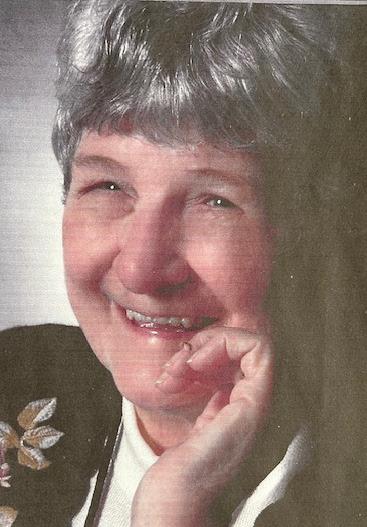
Enrichment. Workout features light chair exercises with optional weights. Cost: Free. For more information, visit jfcsaz.org/cse.
Chair Yoga with Zoe: 11-11:45 a.m. Online. Presented by JFCS Center for Senior Enrichment. 45-minute chair yoga class. No prior yoga experience required. Cost: Free. For more information, visit jfcsaz.org/cse.
THURSDAYS
Memory Cafe: 10-11 a.m. first Thursday; 1-2 p.m. third Thursday. Online. Presented by Jewish Family & Children’s Service. Program for those with changes in their thinking or memory, mild cognitive impairment due to Alzheimer’s disease or a related disorder, along with their care partners. For more information, visit jfcsaz.org/our-services/older-adult-services/ memory-cafe/.
In the Kitchen with Benita: 12:30 p.m. Join Smile on Seniors on the fourth Thursday of every month for some delicious cooking or baking fun! Cost: Free. For full details visit sosaz.org/virtual or email Rabbi Levi Levertov at levi@sosaz.org.
FRIDAYS
Welcome Shabbat: 11-11:30 a.m. Online. Celebrate Shabbat with the JFCS Virtual Center for Senior Enrichment. Each week a different guest host will lead the program with song and celebration. Cost: Free. For more information, visit jfcsaz.org/cse.
Sit or Stand Ballet Class: 12-12:45 p.m. Online. Presented by JFCS Center for Senior Enrichment. Jennifer Cafarella Betts and Friends from Ballet Theatre of Phoenix teach this class. Grab a chair or you can stand next to a chair or counter. Cost: Free. For more information, visit jfcsaz.org/cse.
Musical Friday: 12:30 p.m. Online. Join Smile on Seniors on the first Friday of every month for a musical presentation. Cost: Free. For full details visit sosaz.org/virtual or email Rabbi Levi Levertov at levi@sosaz.org. JN
JOSEPH LEONARD FRITTS
Joseph Leonard Fritts was born on Feb. 19, 2025, at HonorHealth Scottsdale Shea Medical Center. He is the son of Lindsay Gilbert and Bernie Fritts of Scottsdale. Grandparents are Shelley Gilbert and Leonard Goldstein of Scottsdale; Shirley Fritts and the late Herbert Fritts of Greenback, Tennessee. JN
Kathleen (Katie) Cullen-Todora
Kathleen (Katie) Cullen-Todora: Bruriah bat Shulamit, passed away at age 90 on Feb. 27, 2025.
A wonderful human being, wife, mother, sister, grand/ great-grandmother and cherished friend whose life was a tapestry woven with love, service and creativity.
A member of Beth Emeth Congregation in Sun City, then a resident at Kivel Campus of Care in Phoenix, Katie was a published author and poet, a prison chaplain and a hospital chaplain who brought comfort to many. A woman whose zest for life was evident in all she did. She will be greatly missed. Katie was preceded in death by her husband, Nathan (Sonny); son Frank; grandson Taylor; her parents and sister. She is survived by her daughter, Debra; sons Nathan Jr. and Philip; sister Gale (Fred); granddaughters Candace (Brian), Chantell (Zach), Torey (Jared) and Sarah (Andrew); and grand/ great-grandchildren, nieces, nephews, cousins and friends.
A graveside service was held March 4, 2025, at Beth Israel Cemetery and officiated by Rabbi David Rosenberg. Donations can be made to Kivel Campus of Care and Hospice of the Valley in honor of Katie’s life and memory.


•
























